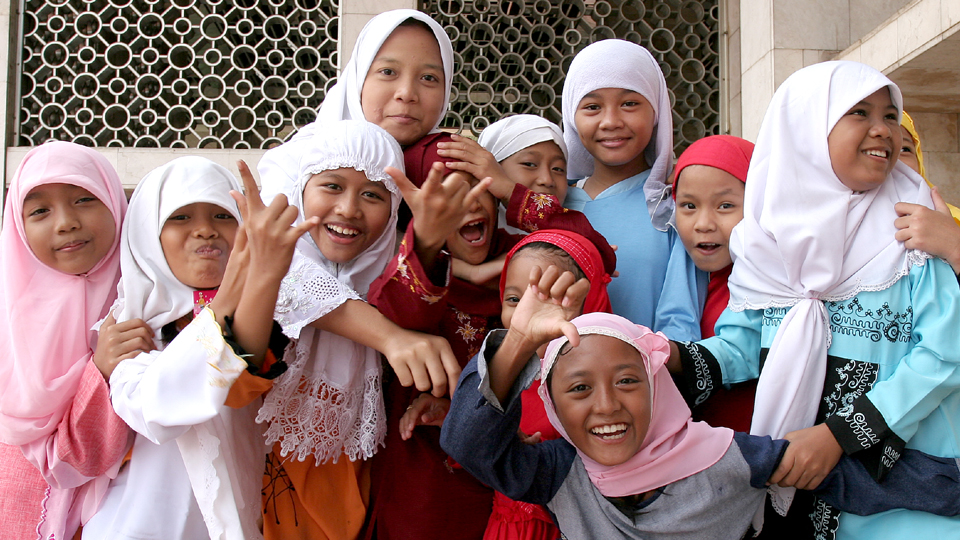In today’s world, it’s easy to feel disconnected from one another. As we become absorbed in our own lives and responsibilities, the sense of community that once united us can seem like a distant memory. But the truth remains: it takes a village to raise a child, and this saying is more relevant now than ever, especially when it comes to the needs of Muslim children in foster care. At Tarbiyyah Horizons, we understand that coming together as a community isn’t just an option—it’s a necessity if we want to ensure that every child has the opportunity to thrive. The Role of Community in Raising Our Children Islam places a strong emphasis on community, or Ummah. It is a collective responsibility to support one another, especially the most vulnerable among us—our children. The Prophet Muhammad (peace be upon him) said: “The believers are like one body; when any part of the body suffers, the whole body feels pain.” (Sahih Muslim) When we see children in need, particularly those who have been separated from their families and placed in the foster care system, it is our duty as a community to step forward and offer our support. By coming together, we can provide the love, guidance, and stability that every child deserves, especially those who may feel lost or disconnected from their cultural and religious roots. The Challenges Faced by Muslim Children in the Foster Care System The Children’s Aid Societies (CAS) in Ontario play a crucial role in protecting and supporting vulnerable children. However, like any organization, they face significant challenges in meeting the needs of every child—especially those from diverse backgrounds like the Muslim community. While CAS works hard to find suitable placements for children, the availability of culturally responsive and faith-aligned homes is often limited. As a result, many Muslim children face the following challenges: What Can We Do as a Community? The challenges faced by Muslim children in the foster care system highlight the need for our community to come together, take action, and make a difference. It is not enough to rely on CAS alone to support our children. As a community, we have the opportunity—and the responsibility—to step up and provide the culturally responsive, faith-aligned care that our children need. Here’s how we can make a difference: Children Are Our Future: Investing in Our Next Generation The Quran and the Sunnah consistently remind us of the importance of children in our lives. They are not only a blessing but also a trust from Allah, and it is our duty to protect and nurture them. By coming together as a community to support Muslim children in the foster care system, we are investing in our next generation of leaders, thinkers, and believers. We are creating a legacy of compassion, resilience, and unity that will impact generations to come. Children are the building blocks of our society. When we take care of them, we are not just shaping their lives—we are shaping the future of our community. By creating a supportive and loving environment for children in foster care, we are ensuring that they grow up with a sense of belonging, faith, and confidence. We are giving them the tools they need to succeed in life and become the best versions of themselves. A Call to Action At Tarbiyyah Horizons, our mission is to bring the community and care together for the sake of our children. But we cannot do it alone. We need your support—whether that means becoming a foster parent, volunteering your time, or spreading the word about our work. Together, we can create a network of care that ensures every Muslim child in foster care has a home where they are loved, valued, and understood. If you are ready to join us on this mission, we invite you to learn more about how you can get involved. Visit our website at [website link] or contact us at [contact information]. Let’s come together as a community to support our children and build a future where community and care truly come together.
The Islamic Perspective on Fostering: A Noble Act of Compassion
In Islam, the concept of caring for orphans and vulnerable children is not only permissible but is considered a highly virtuous act. The Prophet Muhammad (peace be upon him) emphasized the importance of supporting children who have been deprived of the care and protection of their biological families. Fostering, known as “kafalah” in Arabic, holds a special place in Islam as a means to provide for these children in a way that respects their rights and preserves their dignity. In this blog, we explore why fostering is permissible in Islam, its rewards, and how it aligns with the values of Tarbiyyah Horizons in building a supportive community for Muslim children and youth. The Islamic Concept of Fostering (Kafalah) Kafalah is an Arabic term that translates to “sponsorship” or “guardianship.” In Islamic law, it refers to taking responsibility for the care, upbringing, and education of a child whose parents are unable to do so. Unlike adoption in the Western sense, kafalah does not sever the child’s ties to their biological family or alter their lineage; rather, it ensures that the child’s heritage, identity, and name are preserved while providing them with the security and love they need to thrive. The Quran and Sunnah (teachings of the Prophet Muhammad, peace be upon him) both stress the importance of looking after orphans and vulnerable children. The Quran states: “And they ask you about the orphans. Say: Improvement for them is best.” (Quran, 2:220) This verse emphasizes that taking care of orphans, ensuring their well-being, and integrating them into society are deeds that hold great reward. It is about enhancing their lives, supporting their growth, and providing them with opportunities for a better future. The Prophet’s Example: An Encouragement for Fostering The Prophet Muhammad (peace be upon him) set an inspiring example of fostering and caring for orphans. He himself was an orphan and experienced the kindness and support of his uncle, Abu Talib. Moreover, the Prophet (peace be upon him) fostered Zayd ibn Harithah, treating him with such love and care that Zayd chose to stay with him even when his own father came to reclaim him. The Prophet’s love and kindness towards orphans were so profound that he said: “The one who cares for an orphan and myself will be together in Paradise like this,” while he held his two fingers together to illustrate. (Sahih Bukhari) This hadith demonstrates that the act of caring for orphans and vulnerable children is not just permissible but is a path to Paradise. It is a way of gaining closeness to the Prophet (peace be upon him) and earning the pleasure of Allah. Fostering Within the Islamic Framework While fostering is highly encouraged in Islam, it is important that it aligns with Islamic principles, particularly with regard to lineage and inheritance. Unlike traditional adoption practices that may change the child’s family name or inheritance rights, Islamic fostering respects the child’s biological identity. Children in a fostering arrangement retain their family names and are not legally adopted in the sense of becoming a direct heir. This preserves their lineage and ensures their rightful identity is maintained. At Tarbiyyah Horizons, we ensure that our fostering practices align with Islamic principles: The Rewards and Virtues of Fostering in Islam Fostering in Islam is a highly virtuous act that comes with immense rewards. The Prophet Muhammad (peace be upon him) highlighted the significance of supporting orphans and vulnerable children in multiple hadiths. By becoming a foster parent, you are not only providing for the material and emotional needs of a child but also fulfilling an important religious duty that brings you closer to Allah. Some key virtues and rewards of fostering in Islam include: Encouraging Muslim Families to Foster: The Role of Tarbiyyah Horizons At Tarbiyyah Horizons, our mission is to create a network of Muslim families who understand the importance of fostering and are ready to make a difference in the lives of vulnerable children. We believe that fostering within an Islamic framework is not only permissible but is an opportunity to fulfill a noble duty with immense rewards. As a new organization, we are dedicated to supporting families who wish to become foster parents by providing: Conclusion: Embrace the Reward of Fostering Fostering is an opportunity to serve humanity and earn the pleasure of Allah. It is a way to put Islamic values into action by supporting those who need us most. At Tarbiyyah Horizons, we invite Muslim families to join us in this noble cause and become part of a community where community and care come together. If you feel inspired to become a foster parent and wish to learn more about how you can make a difference in the lives of children through fostering, please contact us at [contact information] or visit our website at [website link]. Together, we can create a supportive and loving environment for every child who needs it. References:


